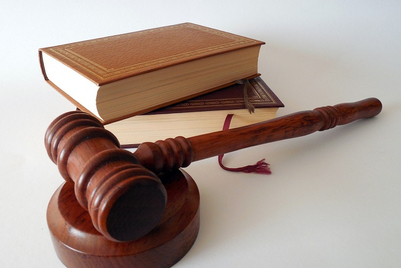Last Thursday, on the eve of The Olympics, journalists from Nine Entertainment—a leading publisher in Australia—voted to strike for five days.
Editorial staff from some of Australia's most established newspapers including The Age, The Sydney Morning Herald, The Australian Financial Review, The Brisbane Times and WAToday began the stop work action last Friday at 11:00am. The strike includes all newspaper staff covering the games in Paris, but not television. About 200 workers were dispatched by Nine to Paris in order to cover the games across all media.
Late last month,
Nine announced that up to 200 of its 5,000 employees would be made redundant. Up to 90 of the planned cuts are in publishing, meaning more than one-sixth of the division’s staff face job losses.
The strike comes after staff took a national vote and rejected a last-minute offer from Nine's management around improved pay. Nine's management had originally offered a 2.5% pay rise in the first year, a deal that staff said was not acceptable.
This was followed by a further offer by Nine's managing director of publishing, Tory Maguire of 3.5% in the first year, 4% in the second year and 3% in the third year, but this too, was rejected on the basis that it did not keep ahead of the cost of living, was less than the current inflation rate of 4% and would mean a pay cut in real terms.
Rallies have taken place outside Nine’s offices in Sydney, Melbourne, Brisbane and Perth at the same time as members walked off the job.
Michelle Rae, acting director of the The Media, Entertainment and Arts Alliance (MEAA), the largest union for Australia's creative professionals
said that "Journalists at
Nine Publishing are being asked to do more for less."
“They are taking a stand for newsrooms that reflect the diversity of the communities they are reporting for, for ethical and transparent use of artificial intelligence, and for better wages.”
One journalist who works for The Age, a daily newspaper in Melbourne, posted to social media that they were proud to walk out with colleagues in the fight for fair pay, secure jobs, and diversity in the workplace.
"This is the fourth newsroom I’ve worked in; I know firsthand what it’s like when decades of experience go out the door—journalism suffers and the public is all the poorer for it. Going on strike and forgoing pay for up to five days (in this economy!) is a sacrifice but you won’t get quality journalism without quality jobs."
For months, journalists have been engaged in negotiations to recoup their losses resulting from the Covid-19 wage freezes. Starting with a pay freeze in July 2020, the last two union-management deals have delivered nominal pay increases of 2% in July 2021, 4% in 2022 and 3.5% in 2023.
In addition to wages, the MEAA is seeking “a genuine commitment to better workplace gender and cultural diversity, improvements to grade progression, and adherence to the MEAA freelance charter of rights” as well as agreements on the use of artificial intelligence.
Nine's CEO, Mike Sneesby,
said their decision to strike falls on “the eve of one of the biggest news events on the planet.”
“Regrettably, the union action comes on the eve of one of the biggest news events on the planet, the Paris Olympics. We have invested significantly to bring unrivalled coverage of the 2024 Games to our valued audiences through Nine’s world-leading journalism," he wrote in an email seen by news.com.au.
He continued, “While we recognise the right of unions to take industrial action, [publishing managing director] Tory [Maguire] and I firmly believe a return to the negotiating table is the best pathway to progressing the EBA (enterprise bargaining agreement).
Australia's media industry continues to be hit by a slow advertising market and loss of revenue from a deal with tech giant Meta, after Facebook and Instagram’s parent company
announced it would stop paying Australian publishers for news when media bargaining deals run out this year.
This has resulted in big media players such as Nine and Rupert Murdoch's News Corp announcing a slew of redundancies as they look to make tens of millions of dollars in cost savings.
"The reality is that profits to shareholders for the past few years have been bloated by the Meta deal. The company always knew that golden goose would not last forever, and now the Meta deal is over it is the profit bottom line that should be cut, not the frontline editorial staff upon whom Nine’s reputation for independent quality journalism depends," said MEAA's Michelle Rae.
Rae continued, “The Australian public relies on these journalists to keep them informed, to hold power to account and to shine a light on corruption and wrongdoing but they cannot do it without safe and secure jobs.
“It is extra galling to our members that while they are attempting to negotiate a new enterprise agreement and dealing with the stress of redundancies in an Australian winter, managing director, Mike Sneesby, is enjoying sunny France as he takes part in the Olympic torch relay. “Our members have a simple message to Mr Sneesby: Get your priorities right and don’t torch journalism.”
Campaign is reaching out to Rae and Nine for further comment.




.jpg&h=334&w=500&q=100&v=20250320&c=1)
.jpg&h=334&w=500&q=100&v=20250320&c=1)
.jpg&h=334&w=500&q=100&v=20250320&c=1)




.png&h=334&w=500&q=100&v=20250320&c=1)



.jpg&h=268&w=401&q=100&v=20250320&c=1)
.jpg&h=268&w=401&q=100&v=20250320&c=1)



.png&h=268&w=401&q=100&v=20250320&c=1)
